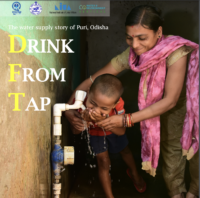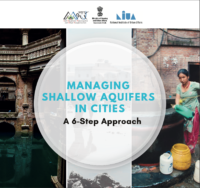Resources
Policy and Guidance DocumentsA Strategic Framework for Managing Urban River Stretches in the Ganga River Basin: URMP
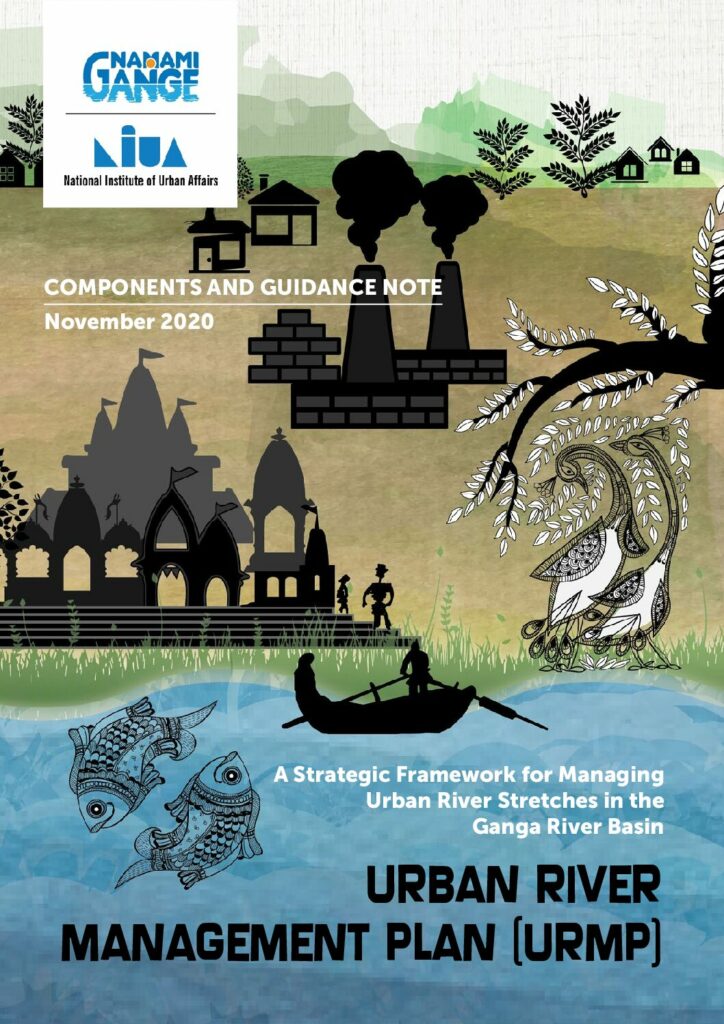
National Institute of Urban Affairs (NIUA) & National Mission for Clean Ganga (NMCG) developed a unique first-of-its-kind strategic framework for managing urban river stretches in the Ganga River Basin called the “Urban River Management Plan”. The framework essentially requires all cities to plan and implement their actions (a mix of planning and project-related interventions) under a ten-point agenda to ensure that the cities act as inter-related operational units working towards a common vision for the river.
Strategic Guidelines for “Making River Sensitive Master Plans
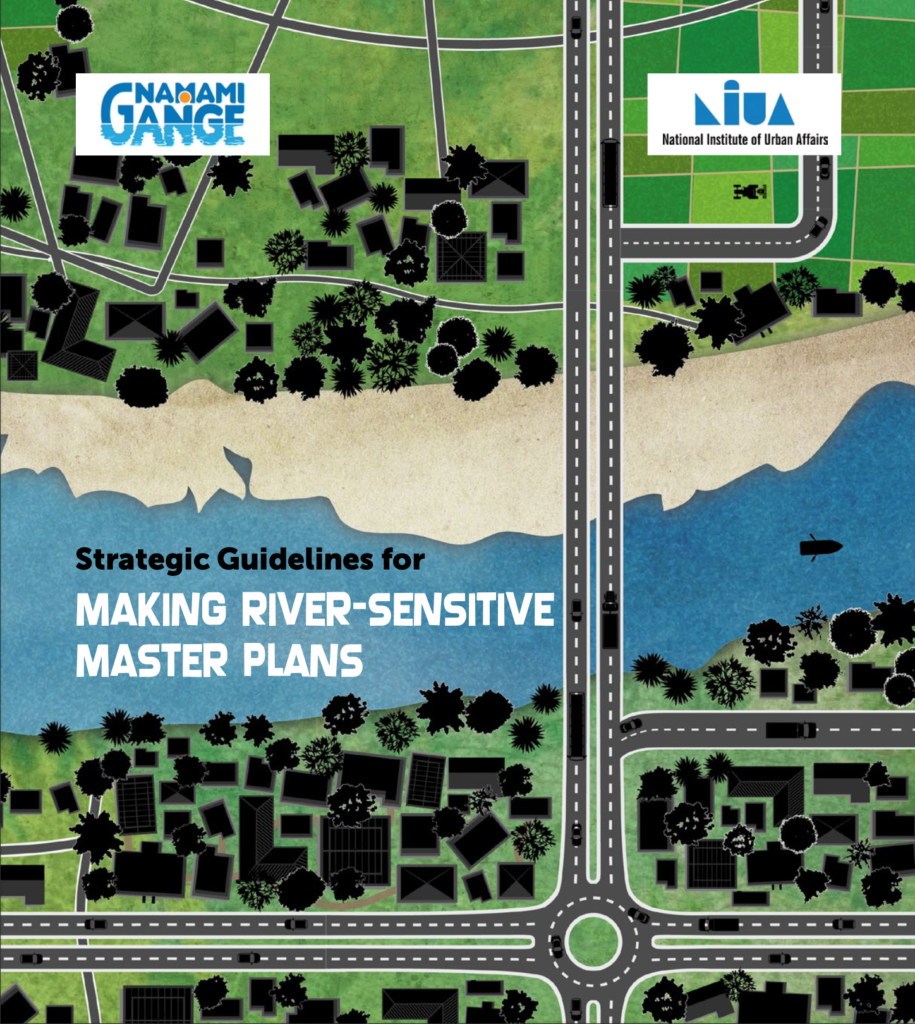
National Institute of Urban Affairs (NIUA) & National Mission for Clean Ganga (NMCG) developed Strategic Guidelines for “Making River-Sensitive Master Plans”. The purpose of this guidance document is to help city planners across the basin, and the country at large, understand how to integrate river-sensitive thinking into a Master Plan.
URMP Kanpur
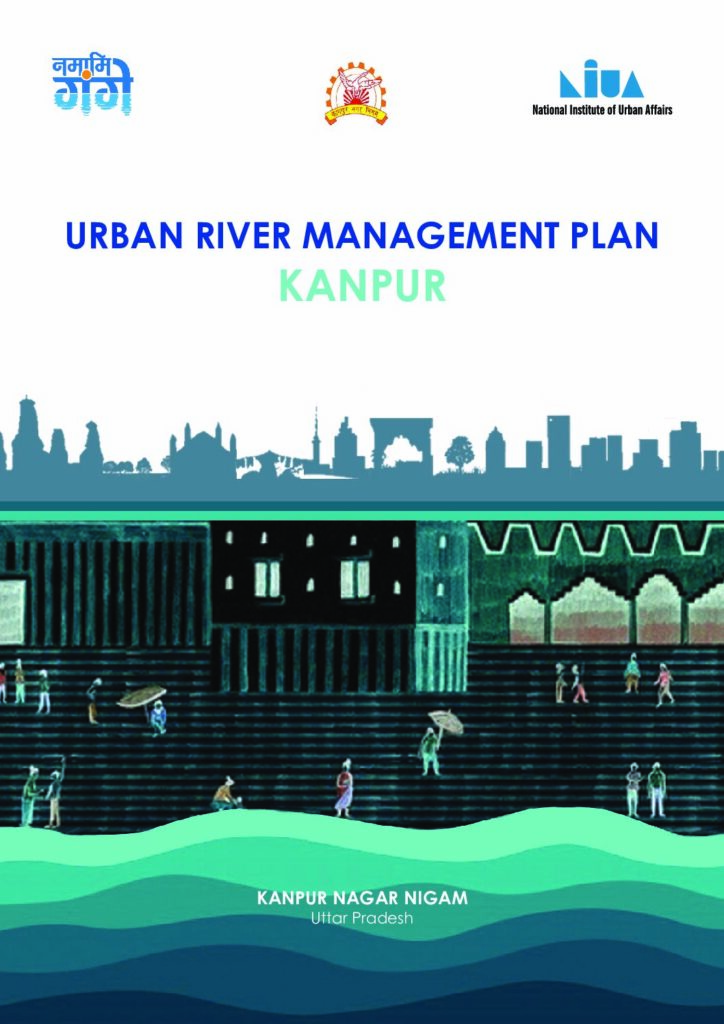
NIUA has handheld the city of Kanpur in preparing its Urban River Management Plan (URMP) of Kanpur as a dedicated strategy for managing the extent of the Rivers Ganga and Pandu—that flow through the city—in an efficient and sustainable manner. It has been developed with the overall vision to ensure the harmonious integration of the Rivers Ganga and Pandu in the development landscape of the city.
A Guide towards River-Sensitive Urban Planning
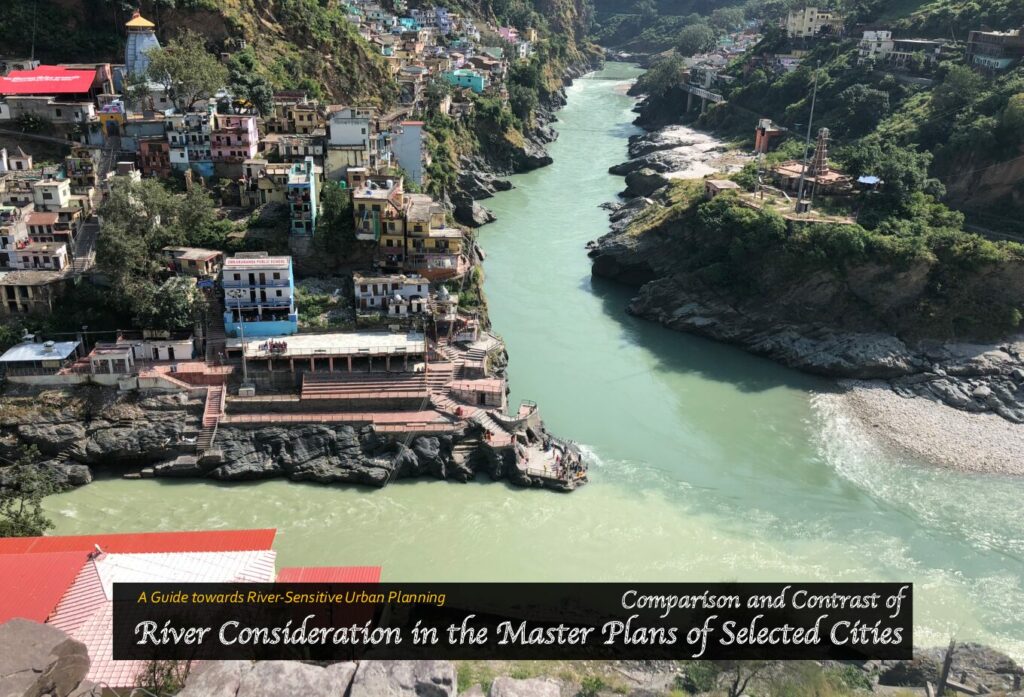
National Institute of Urban Affairs (NIUA) & National Mission for Clean Ganga (NMCG) prepared a knowledge product on ‘Comparison and Contrast of River Consideration in the Master Plans of Selected Cities’. This document shares examples of river-related aspects adopted by Master Plans of various cities.
Innovations in Urban River Management
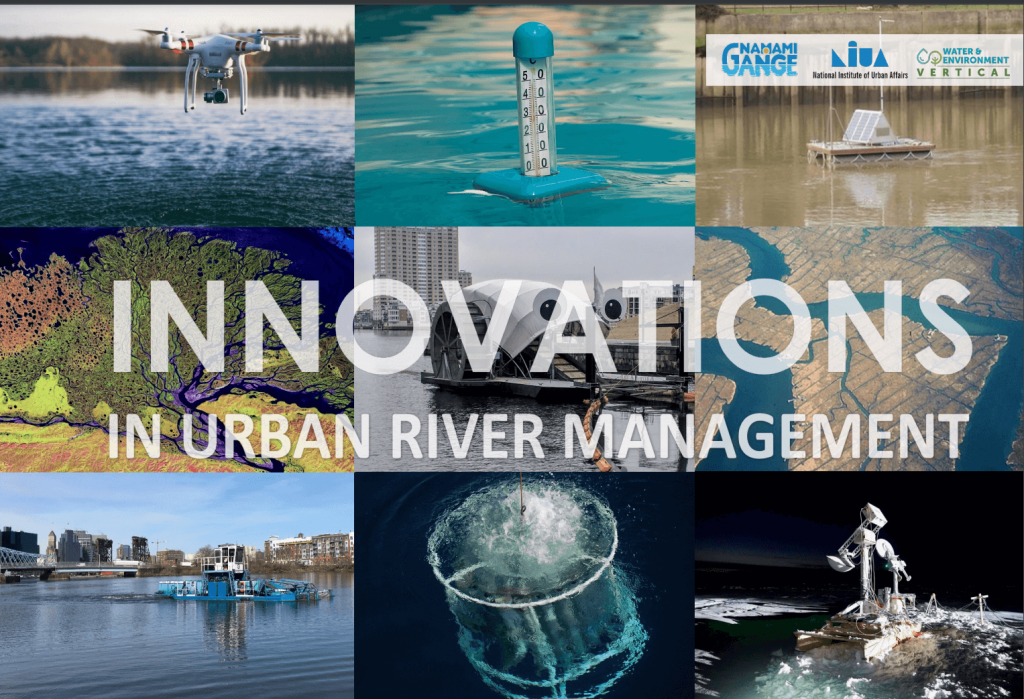
With the advancement of knowledge, percolation of information and technology and increasing awareness among citizens, efforts have already been made across the globe to come up with unique and out-of-the-box initiatives for river management. National Institute of Urban Affairs (NIUA) & National Mission for Clean Ganga (NMCG) prepared a knowledge product on ‘Innovations in Urban River Management’. The purpose of this product is to showcase innovations, especially to city governors and administrators, in order to help them identify possible solutions for local issues. Several innovative case examples from the domain of Information & Technology, Robotics, Artificial Intelligence, Geographic Information Systems, etc. are presented in this product.
A Compendium of River Management Plans – From Managing River Basins to River Specific Projects
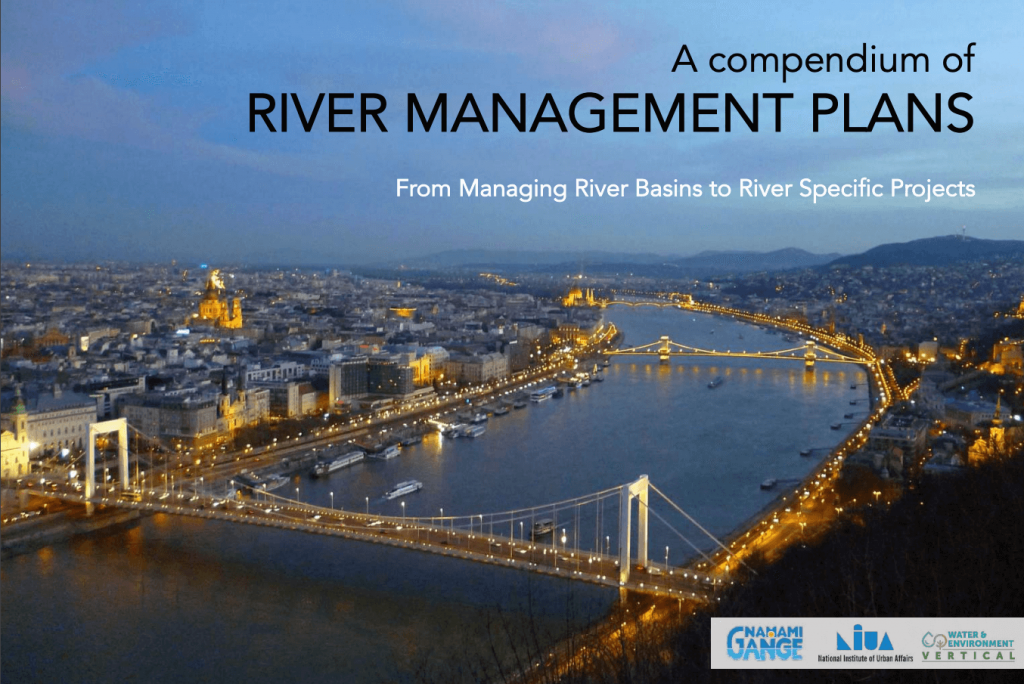
National Institute of Urban Affairs (NIUA) & National Mission for Clean Ganga (NMCG) prepared a knowledge product titled ‘A Compendium of River Management Plans’. This product tries to capture some of the best practices adopted for effective river management across the globe, while emphasizing the need of comprehensive river management for addressing the issues faced by river cities in India. The case examples incorporated in this Knowledge Product highlight the globally prevalent river management practices, with a focus on key strategies for – ecological restoration of the river (Environment); enabling the re-connect of people with the river (Social) and; boosting the livelihoods of people associated with river activities (Economy). An assessment of such attempts can provide an opportunity to adopt and replicate them.
Eco-friendly Interventions for Riverfront Development
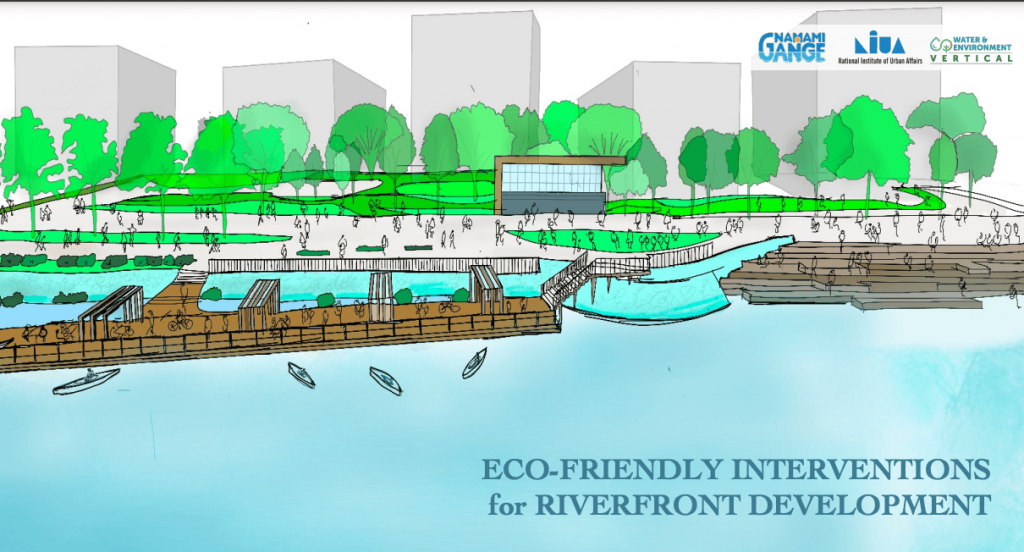
Rivers play an intrinsic role in community engagement. They have vast potential for activating a city’s social, economic as well as cultural life. River edges, owing to their natural character and landscape, are ideal locations for exploring the potential of ecologically developed recreational areas within the city. National Institute of Urban Affairs (NIUA) & National Mission for Clean Ganga (NMCG) prepared a knowledge product on ‘Eco-friendly Interventions for Riverfront Development’. This knowledge product showcases a set of best practices, with eco-friendly interventions and specific elements, that can be adopted for environmentally sensitive, economically viable and socially cohesive development of the urban riverfronts. A mix of practices can be adopted together as per the local needs, to achieve the desired goal of developing eco-sensitive riverfronts, which also improves the social connect while maximising the economic potential of the river.
Celebrating the Intangible Value of Water
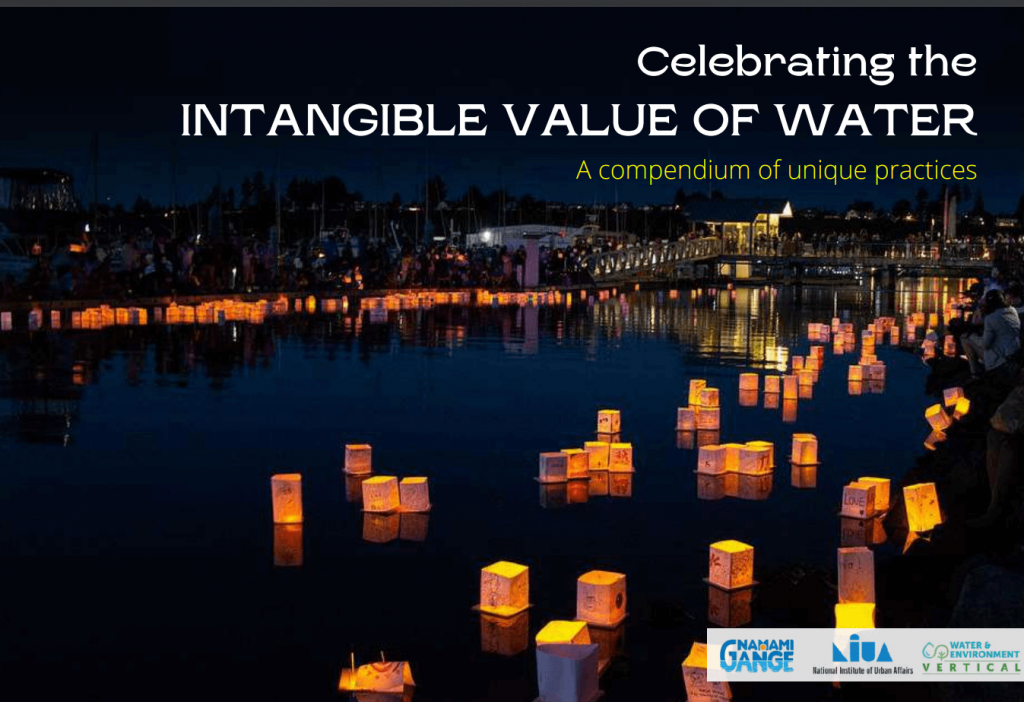
Perhaps no other natural resource is as significant as water in the path to sustainable development. Achieving water security is, therefore, a top priority for governments across the world, through various policies, plans, and projects. It is important that such initiatives acknowledge and leverage on the intangible value of water as a means to enhance the overall water security of the region. The intangible value of water is found in almost every country through unique cultures, traditions, festivals, and rituals. This underscores the intrinsic place of water in society, far beyond merely being a source of meeting basic human needs. As the adage goes, what we cherish, we value, and what we value, we protect. Leveraging on the intangible value of water can, therefore, serve as a sound strategy to ensure its judicious use. National Institute of Urban Affairs (NIUA) & National Mission for Clean Ganga (NMCG) prepared a knowledge product on ‘Celebrating the Intangible Value of Water’. This compendium highlights unique examples from different corners of the wo
Participant Handbook – Orientation Training
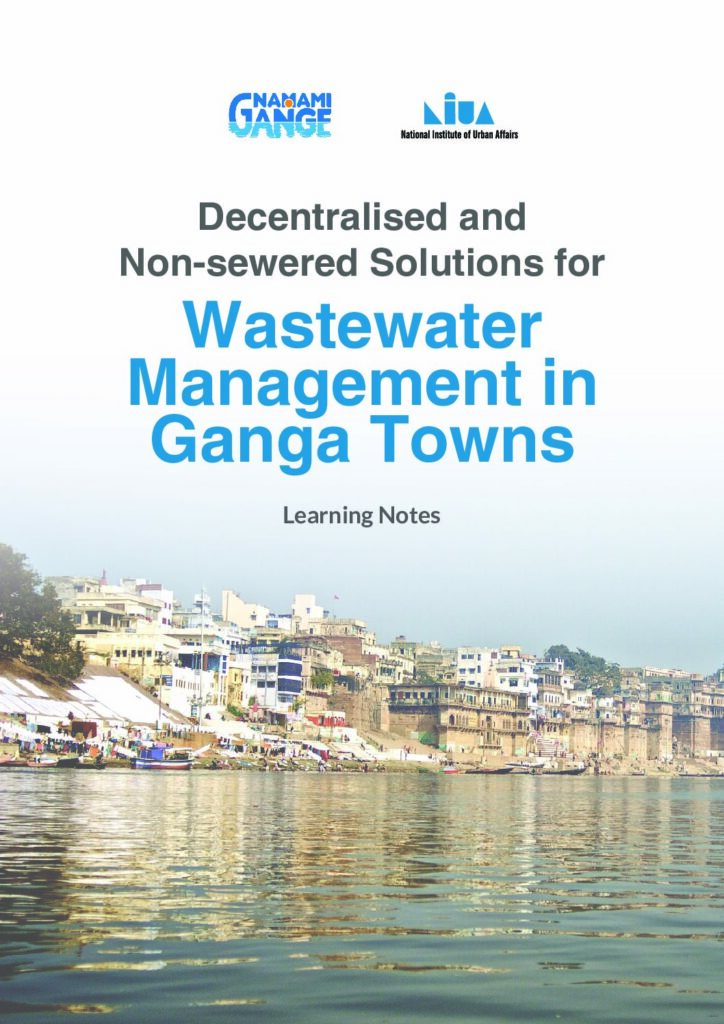
“Decentralised and Non-Sewered Wastewater Management for Selected Ganga Towns” – The handbook is an initiative of NIUA to build capacities of urban local bodies (ULB), para state technical agencies, administrators and professionals on decentralised and non-sewered solutions for managing the domestic wastewater and its role in complimenting centralised networked systems to ensure holistic sanitation coverage. The handbook presents the key learning elements for the basic training module and developed based on delivering orientation trainings on Integrated Wastewater and Septage Management (IWSM) and Faecal Sludge and Septage Management (FSSM).
Participant Handbook – Advance Training
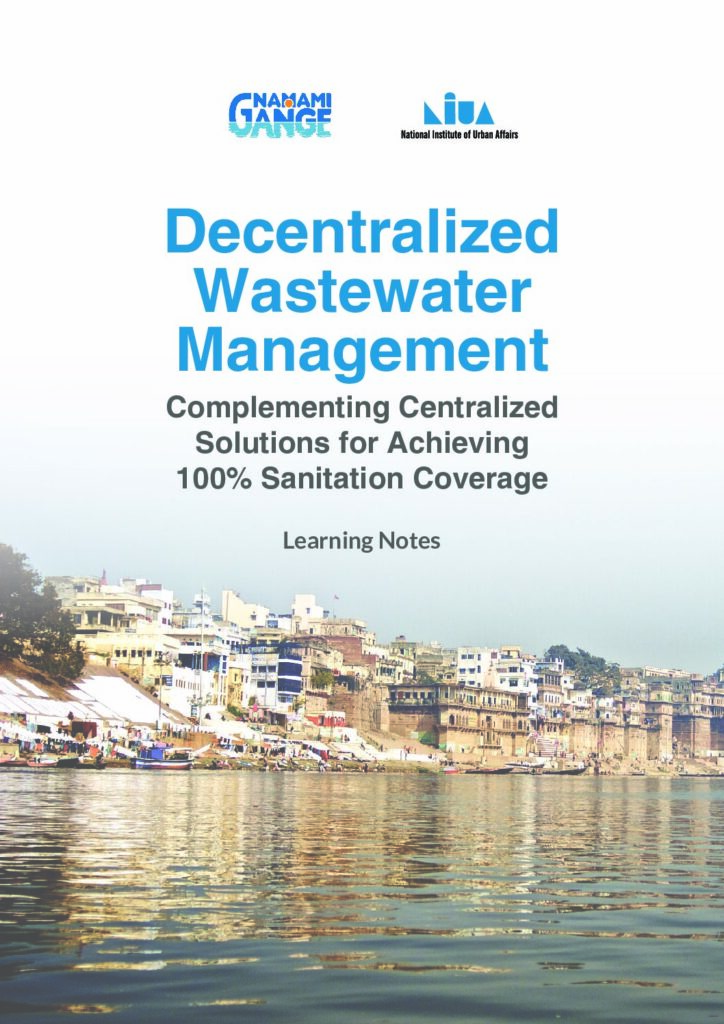
“Decentralised Wastewater Management – Complementing Centralised Solutions for Achieving 100% Sanitation Coverage” – The handbook is an initiative of NIUA to build capacities of urban local bodies (ULB), para state technical agencies, administrators and professionals on decentralised wastewater management with focus on Faecal Sludge and Septage Management (FSSM) in Ganga towns. The handbook presents the key learning elements for the advance training module and developed based on experience of delivering advance trainings on Integrated Wastewater and Septage Management (IWSM) and Faecal Sludge and Septage Management (FSSM).
Policy Brief on the Future of River Management
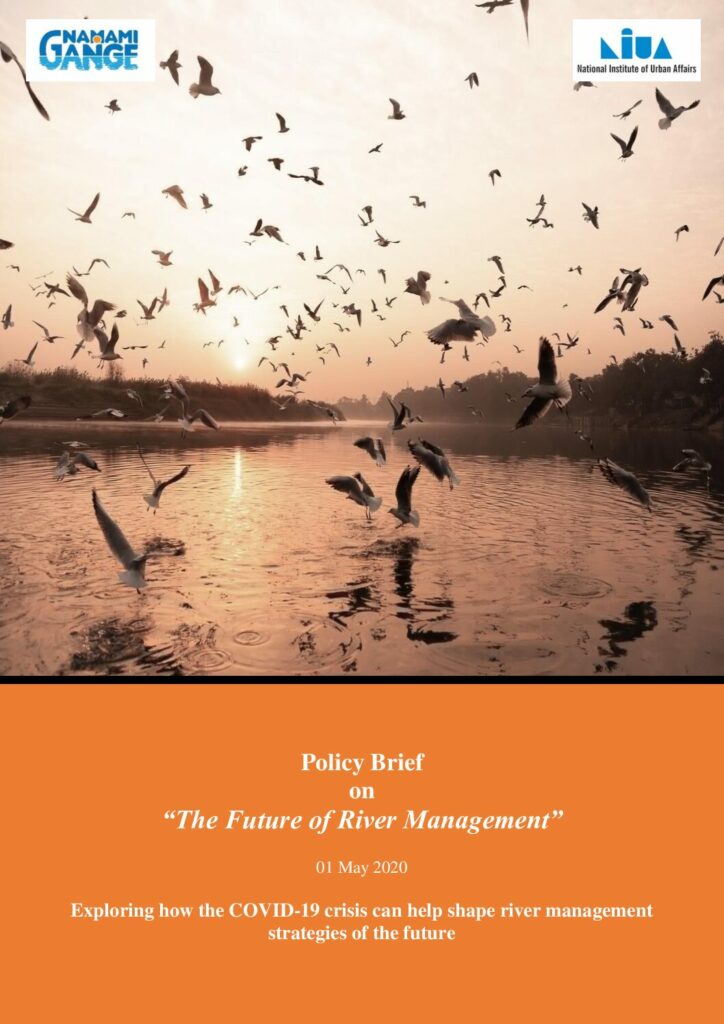
On 1 May 2020, the National Institute of Urban Affairs and the National Mission for Clean Ganga organized an Ideathon on “The Future of River Management”. The purpose of this Ideathon was to use the current COVID-19 crisis as a backdrop to brainstorm on the river management lessons that the crisis has taught us and the strategies that river management in the future should focus on. This policy brief is a succinct collection of the ideas discussed under each of identified themes.
Eco-friendly Interventions for Riverfront Development
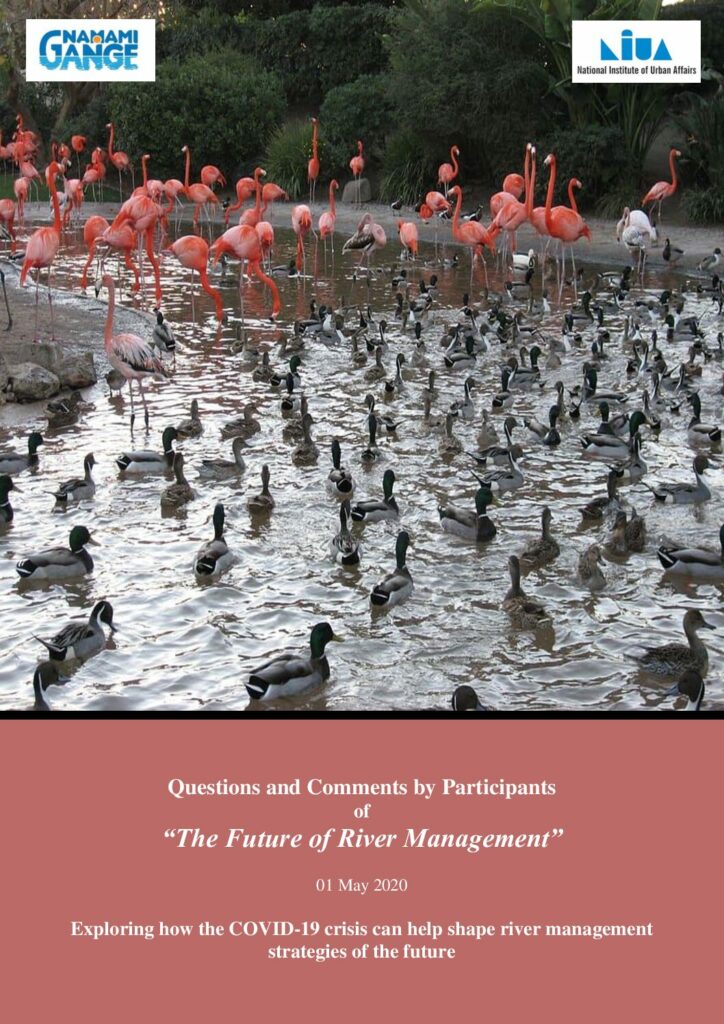
On 1 May 2020, the National Institute of Urban Affairs and the National Mission for Clean Ganga organized an Ideathon on “The Future of River Management”. The purpose of this Ideathon was to use the current COVID-19 crisis as a backdrop to brainstorm on the river management lessons that the crisis has taught us and the strategies that river management in the future should focus on. This document is a compilation of the responses and reflections, to the questions and comments shared by the participants.
Urban Water Body Diagnostic Tool
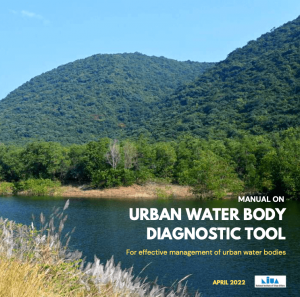
National Institute of Urban Affairs (NIUA) & UNESCO, New Delhi have jointly developed an ‘Urban Water Body Diagnostic Tool’, to act as a decision support system for city administrators to manage the water bodies within their jurisdiction. The purpose of this tool is to help identify and prioritise actions for the rehabilitation and rejuvenation of water bodies within any city. The Tool uses a mix of outcome and process-based indicators, assigned with appropriate weights (using the Analytical Hierarchy Process), to help make an end-to-end diagnosis of each water body in the city.
Toolkit for Preparing City Action Plans for Reuse of Treated Used Water
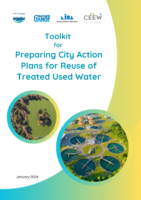
The safe and practical application of re-use of treated used water within urban limits has emerged as one of the priority areas as identified by river cities in India. Key national missions like Namami Gange, AMRUT, and SBM have been instrumental in pushing the agenda and creating an enabling environment for the reuse of treated used water in urban areas. However, cities are facing challenges in implementing measures on the ground due to the lack of knowledge around the scientific application of re-use measures. To address the need of cities to implement an efficient reuse infrastructure, the National Institute of Urban Affairs (NIUA) along with the National Mission for Clean Ganga (NMCG) have prepared a Toolkit aimed at guiding the cities in taking a step-by-step approach to assess their current situation about the availability of treated used water and possible avenues for its reuse and application. The Toolkit also aims to help cities make informed decisions concerning the planning and implementation of treated used water reuse infrastructure. The Toolkit will be a guiding document for “Preparing City Action Plans for Reuse of Treated Used Water (TUW)” and will help with sustainable water management, diversification of water sources, and environmental protection.
Thesis Competition on Re-Imagining Urban Rivers, Season 2
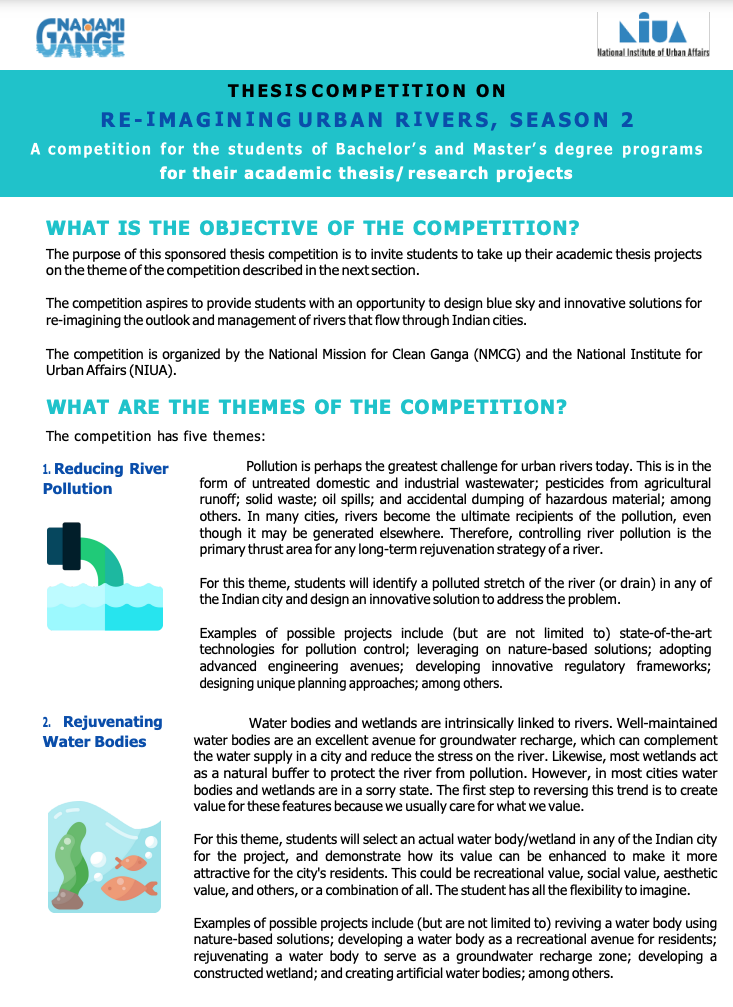
This concept note shares details of the national level thesis competition, organised by the National Institute of Urban Affairs (NIUA) & National Mission for Clean Ganga (NMCG). This annual competition is a means to sensitize and encourage next generation planners and practitioners to take up projects for harmonious integration of cities and rivers.
Project Brochure
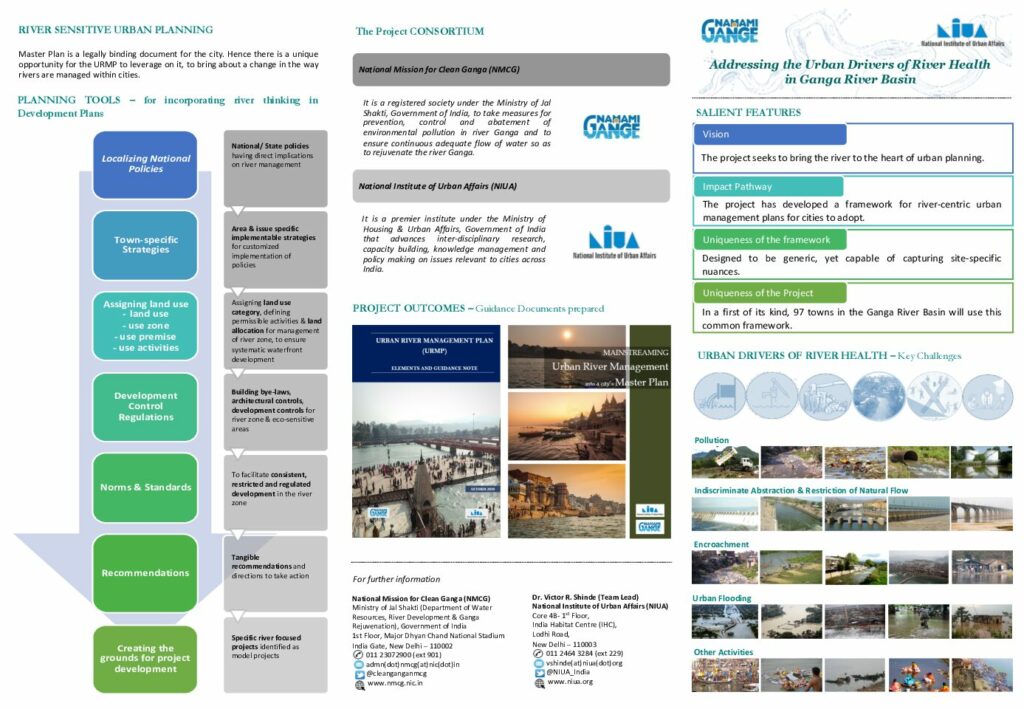
This brochure shares details of some of the activities undertaken under the URVERS project.
Training Manual – Water Resources Management
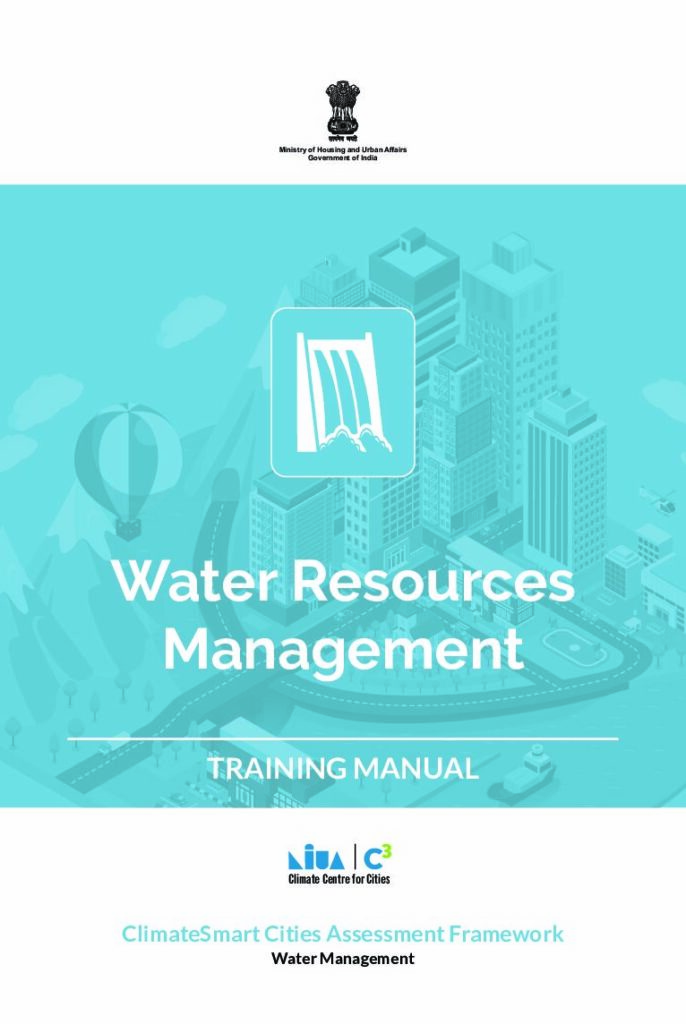
Prepared by the Climate Centre for Cities at NIUA, this training manual is a guide for various aspects of water management, developed under the ClimateSmart Cities Assessment Framework. This document will be available soon
Training Manual – Energy Efficient Water Supply System
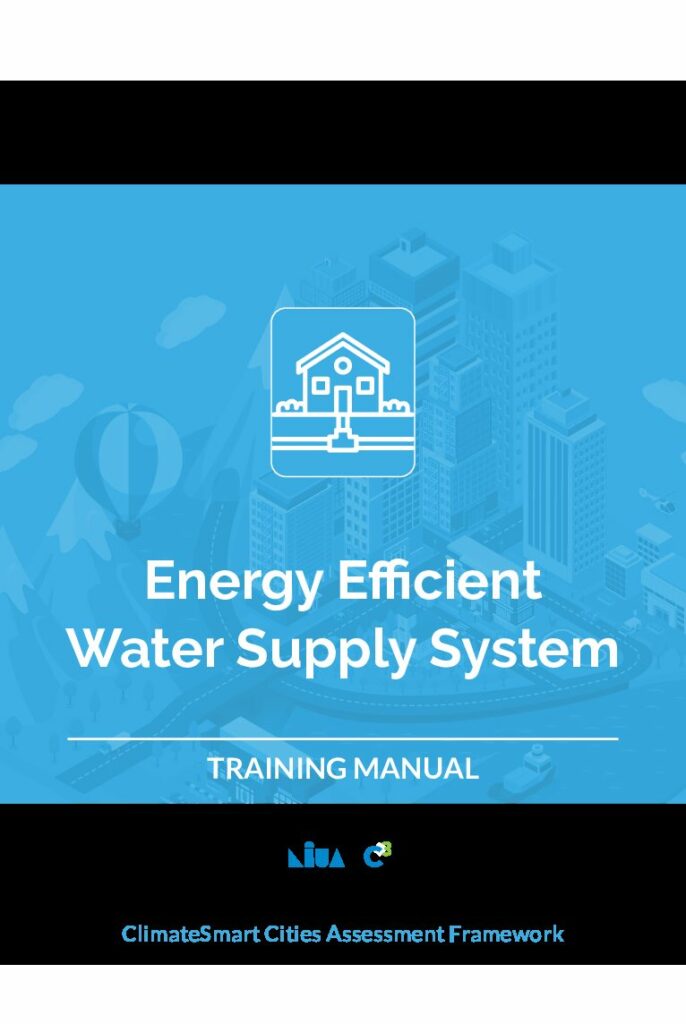
Prepared by the Climate Centre for Cities at NIUA, this training manual is a guide for various aspects of water management, developed under the ClimateSmart Cities Assessment Framework. This document will be available soon.
Training Manual – Energy Efficient Wastewater Management System
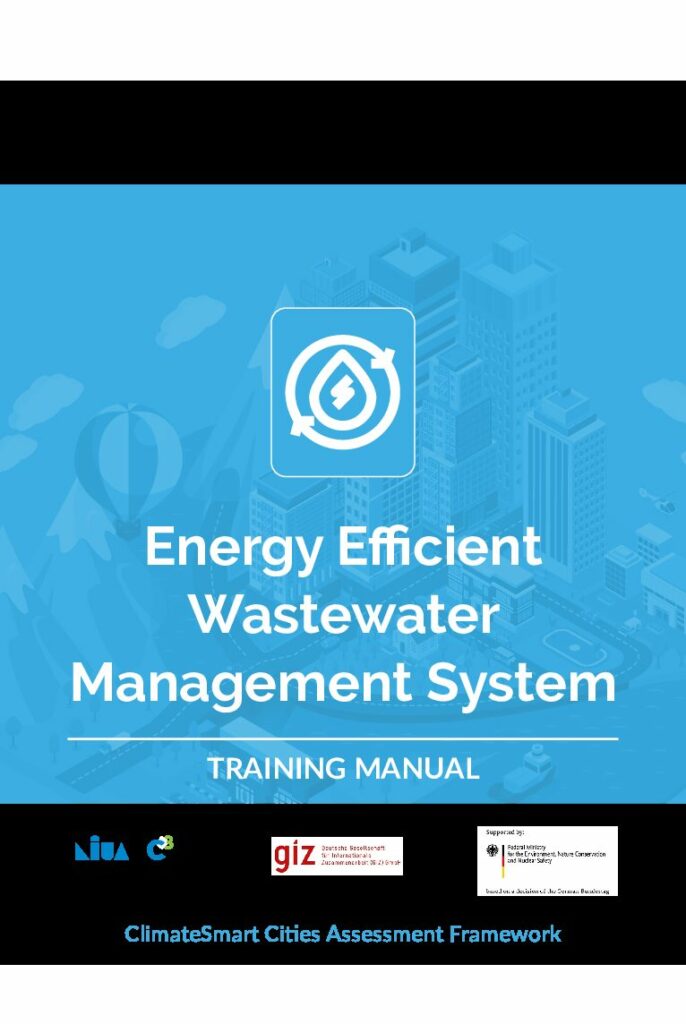
Prepared by the Climate Centre for Cities at NIUA, this training manual is a guide for various aspects of water management, developed under the ClimateSmart Cities Assessment Framework. This document will be available soon.
Training Manual – Wastewater Recycle and Reuse
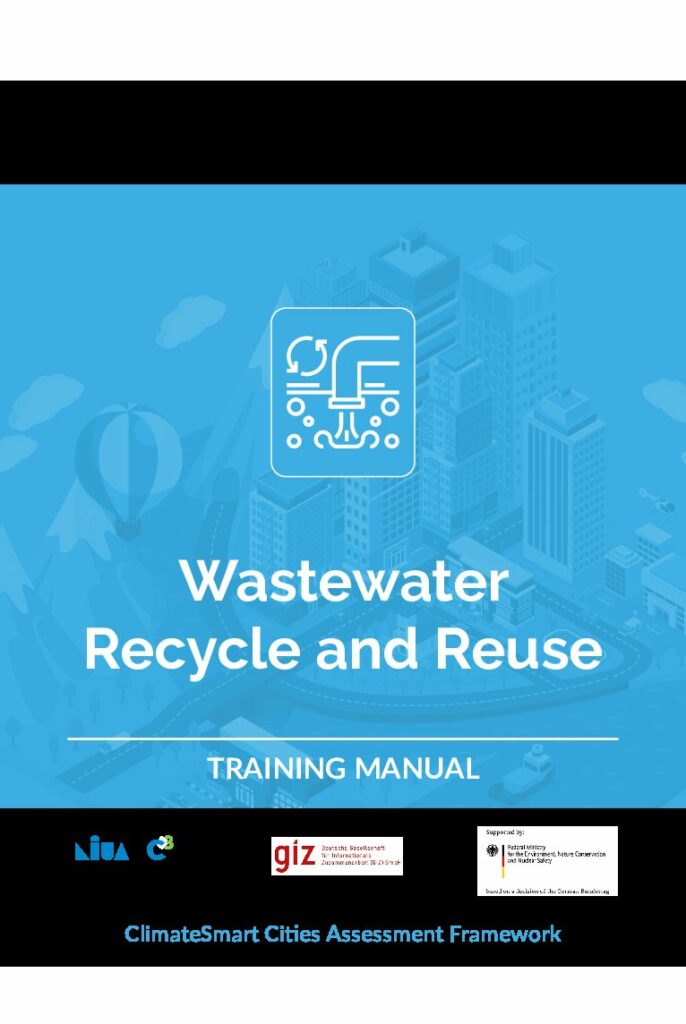
Prepared by the Climate Centre for Cities at NIUA, this training manual is a guide for various aspects of water management, developed under the ClimateSmart Cities Assessment Framework. This document will be available soon.
Training Manual – Flood and Water Stagnation Risk Management
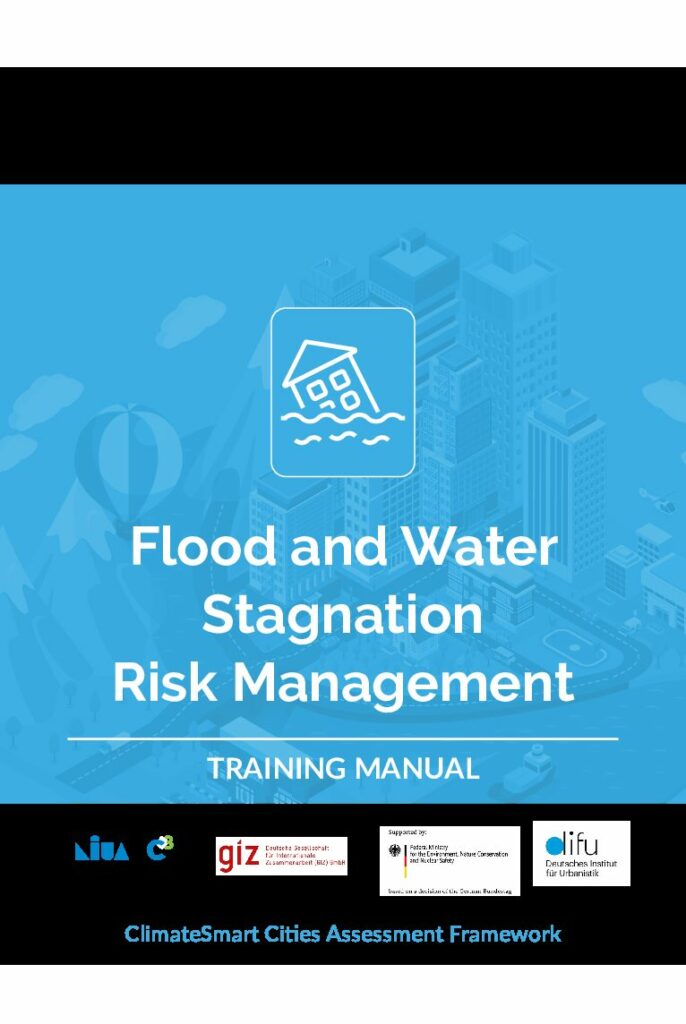
Prepared by the Climate Centre for Cities at NIUA, this training manual is a guide for various aspects of water management, developed under the ClimateSmart Cities Assessment Framework. This document will be available soon.
Training Manual – Extent of Non-Revenue Water
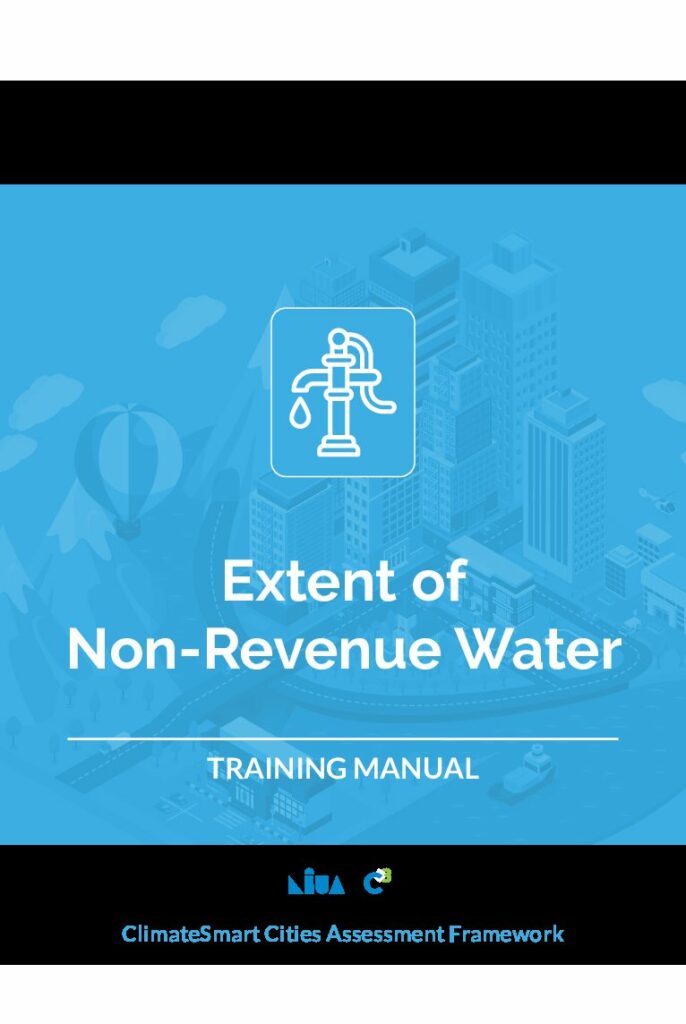
Prepared by the Climate Centre for Cities at NIUA, this training manual is a guide for various aspects of water management, developed under the ClimateSmart Cities Assessment Framework. This document will be available soon.

